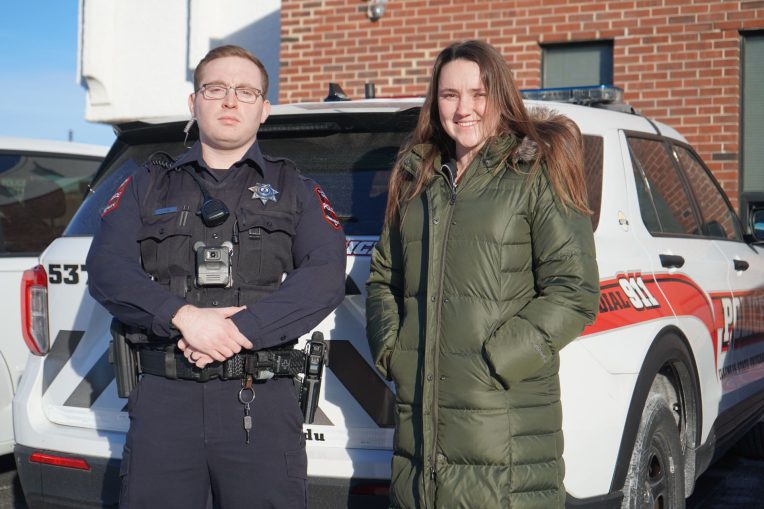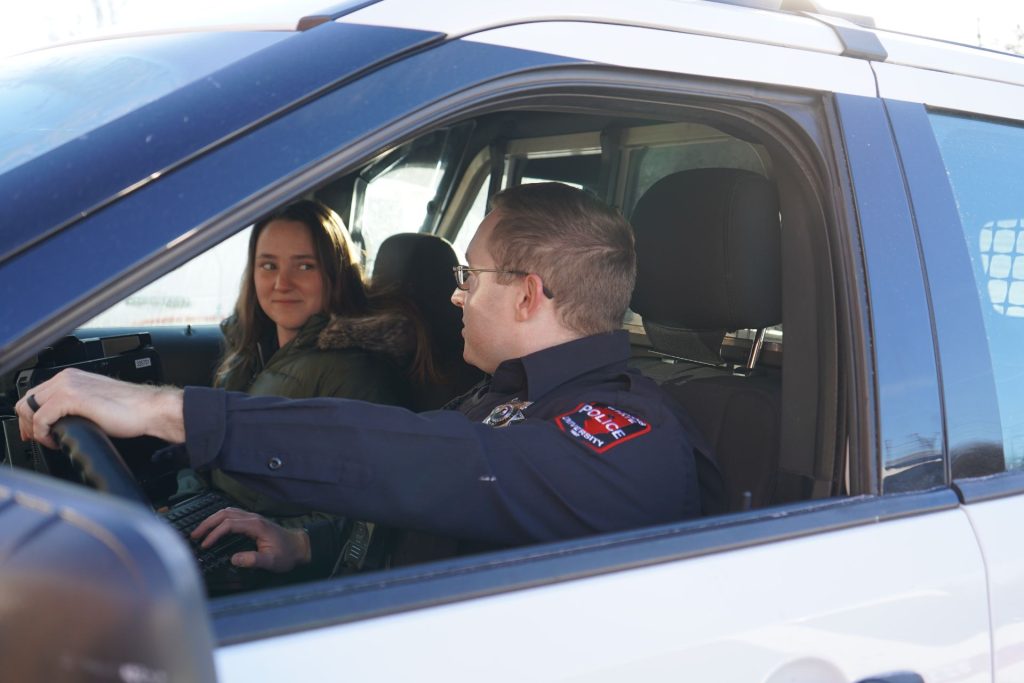The Illinois State University Police Department (ISUPD) is launching a co-responder program this semester with hopes of helping individuals in crisis. In collaboration with The McLean County Center for Human Services (MCCHS), the program pairs a police officer with a crisis worker to respond to mental health calls.
Maddie Stevens, a crisis counselor for MCCHS and an Illinois State University alumna, serves as the department’s new crisis worker. She says her ability to empathize with clients inspired her to follow this career path.
“I think I have always had a passion, understanding, and calling to help those who face challenges with their mental health,” said Stevens. “I have lost two close friends to suicide. There are days when it is hard, or triggering, but that comes with any job. I truly enjoy what I do.”
Under the new program, calls will come from 911 dispatch, or as referrals from non-emergency calls. Then, an officer will transport Stevens to the individual and ensure the scene is safe. From there, Stevens will gather the necessary information, develop a clinical assessment, and work with the individual to make a plan moving forward.
ISUPD Chief Aaron Woodruff says one of the goals he hopes to achieve with the co-responder program includes a decrease in individuals being transported to the hospital for mental health evaluations.
“The Center for Human Services staff are the ones performing these evaluations at the hospital. Now that we have a crisis worker within our department, we could perhaps make a better judgment on who needs to be transported and who doesn’t,” said Woodruff. “Primarily, our focus is on our students and making sure we’re not impacting them unnecessarily.”
While all officers within the department become certified in crisis intervention training, Woodruff believes a crisis worker’s added expertise is very beneficial.
“Professionals like Maddie receive more advanced training to work with individuals in crisis,” said Woodruff. “They’re able to approach mental health assessments from a different perspective than officers.”
As for Stevens, she believes the program could help increase connectedness to mental health resources on campus, as well as end the stigma around asking for help.
“I think this happens because people may not understand the complexities of mental health,” said Stevens. “Working toward change and ending the stigma is important, and I feel that as a society, it is possible through more awareness and education.”
For a list of mental health resources at Illinois State University, you can visit StudentAffairs.IllinoisState.edu/redbird-well.


